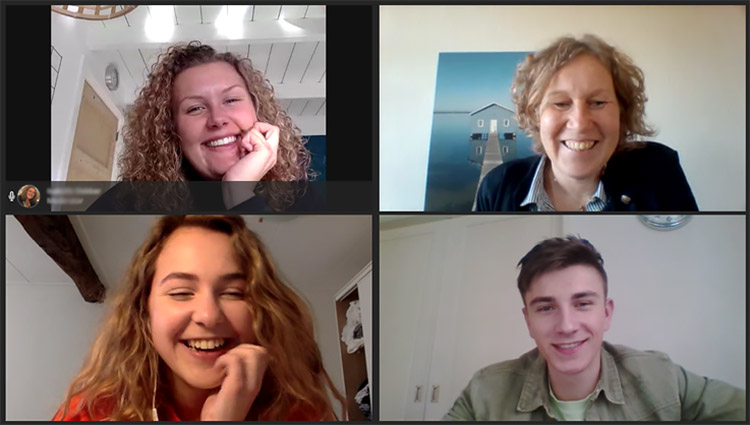Education
Thanks to a solid online infrastructure and ample flexibility and adaptability on the part of both staff and students, UM switched to online education with unprecedented speed. This was later supplemented with several on-campus options.
The main education-related measures:
- Lecturers were able to use existing and new video-conferencing tools and were familiarised with the use of various digital applications for education. Students also worked with video-conferencing tools and continued to have access to the Student Portal with information about timetables and exams.
- Students and lecturers were offered comprehensive manuals, accelerated access to ToolWheel and a series of webinars for dealing with online education.
- Because exams could no longer be held on campus, other testing methods were implemented, including papers, essays and open-book exams. For exams that could not be administered this way, solutions were found on a case-by-case basis. Large-scale exams were held in the MECC following appropriate safety protocols, or online using digital invigilation (proctoring).
- The use of online proctoring was kept to a minimum. When unavoidable, it was implemented using in-house platforms. A tender has since been issued for collaboration with an external partner.
- UM established a number of compensation schemes to assist students whose graduation has been delayed due to COVID-19, who are experiencing financial difficulties, or who were forced to discontinue their exchange programme prematurely. Students with a disability, who lacked proper access to online learning resources or who had problems with their equipment were also entitled to special provisions. The compensation schemes are as follows: Enrolment without completing prior education (zachte knip-regeling), UM scheme for a reduction in institutional tuition fees, BSA postponement, UM COVID-19 Leniency Committee, SWOL Emergency Fund, Force majeure Erasmus+ programme. UM also extended the application deadlines for the 2020/21 academic year to give students more time to register for a study programme.
- Initially, exchange programmes were suspended temporarily. The decision has since been made to continue incoming and outgoing exchange programmes in autumn 2020 under strict conditions.
- All graduation ceremonies were cancelled and degree certificates could no longer be printed. Faculties can now present physical degrees to graduates upon request, in compliance with the corona rules.
Looking back, we are very proud of what our staff and students were able to achieve in such a short time. Nonetheless, we are aware that great demands were made of many in the academic community, and that the quality of online education would undoubtedly have benefited from more preparation time.
Looking forward
From September, education at UM will be a mix of ‘online if necessary, on campus if possible’. Online provisions have been made for students who cannot travel to Maastricht. For students who are able to come to the university in person, educational and social activities have been incorporated into the curricula. These activities will vary per programme and are, naturally, subject to the ever-changing government measures. We have developed a revised educational vision, taking into account our recent experiences with online education and combining the strengths of online and on-campus learning (blended learning).

